As if dealing with COVID isn't enough, now there's another potential threat to be aware of. Monkeypox, a rare virus that has symptoms of a rash, swollen lymph nodes, headache, muscle pain, fever, body aches, chills and fatigue is spreading in several countries, putting officials on high alert. However, monkeypox is not as contagious as COVID, according to health experts we spoke with and the CDC's Director Dr. Rochelle Walensky said in a briefing last week, "The U.S. has the resources we need to help us respond to monkeypox in this country right now. We've been preparing for this type of outbreak for decades," Nevertheless it's important to stay informed and Eat This, Not That! Health talked with infectious disease specialists who shared what to know about monkeypox and how it affects patients.
What Should People Know About Monkeypox?
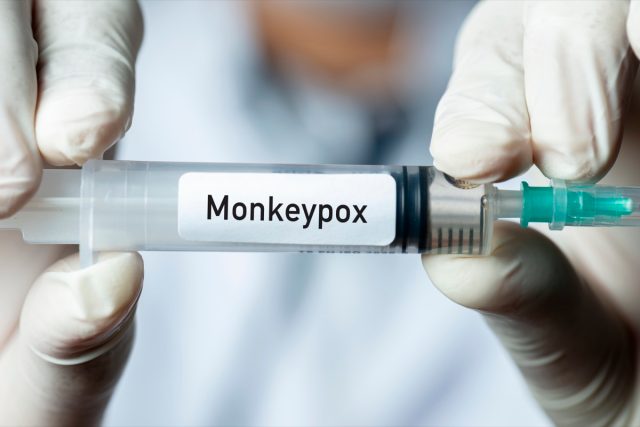
Ravi Vemuri, MD, and infectious disease specialist at MercyOne says, "Monkeypox is a rare disease that is caused by infection with the monkeypox virus. This virus belongs to a group of viruses known as Orthopoxviruses. This group includes smallpox and cowpox viruses. Smallpox has been declared eradicated from the world in 1979. Monkeypox was first discovered in 1958 in outbreaks of a pox like disease in monkeys that were kept for research. The first human cases were described in 1970 in the Democratic Republic of Congo. Until recently it has been predominantly known as a zoonosis meaning that it is an infection that you contract from animals. Person-to-person transmission had been extremely rare. It only occurred in the healthcare workers exposed to an active case or close family members of an active case".
Purvi Parikh, MD Infectious Disease Allergy and Immunology, Pediatric Allergy & Immunology with NYU Langone Health adds, "It is a virus common in certain regions of central and west Africa. It is a zoonotic virus transferred from rodents and non-human primates to humans. It is similar in presentation to small pox yet luckily less severe. There is still very little human to human spread. Of date there are only a handful of cases in the USA."
What Is Causing The Monkeypox Outbreak?
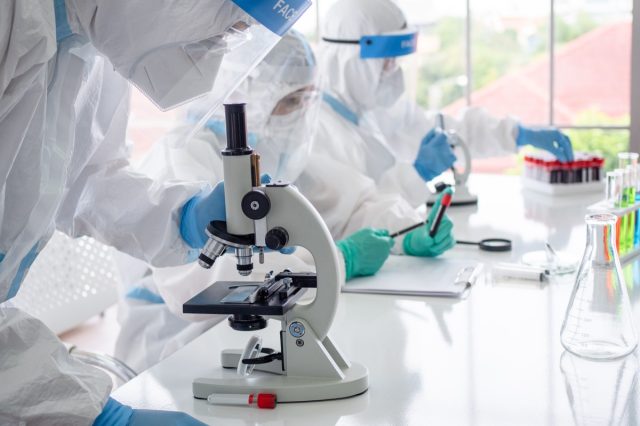
Dr. Parikh says, "Spread is through very close contact with bodily fluids and we believe the most recent outbreak is sexually transmitted."
Dr. Vemuri explains, "Cases are rising in endemic countries that are those countries where it is occasionally reported most of these are in Western and Central Africa. In these countries the virus survives predominantly in rodents. Humans and nonhuman primates are accidental or incidental hosts. Monkeypox should probably be more accurately referred to as rodent pox. Many experts feel that cases are rising in endemic countries due to factors like climate change but more importantly probably due to waning in the population of immunity against smallpox. Once smallpox was declared eradicated only military personnel in certain countries have been receiving smallpox vaccine therefore we have large numbers of the relatively younger people born after 1980 who have never received smallpox vaccine therefore they are more susceptible. Since it is related to smallpox it is felt that smallpox vaccination provides some degree of protection from monkeypox. In the United States we stopped giving smallpox vaccination routinely in the late 1960s. Either travelers from or visitors to the endemic countries in Africa were the usual vehicles of transmission for this virus up until recently. That is an individual who let's say visited Nigeria would fly back to London and then would come down with the disease. Transmission only potentially occurred to healthcare workers and close family members. What is different with this outbreak is people totally unconnected to any known person with this infection or any known animal or any travel to any of these endemic areas are coming down with the infection. This suggests that there is some subclinical transmission happening."
How Worried Should People Be About The Situation?

"It is a fluid situation," Dr. Vemuri emphasizes. "At this time we should be more worried about COVID than monkeypox. Having said that, if an individual has lesions that they suspect might be due to monkeypox they should report to their physician. The CDC has excellent photographs of what these lesions look like. Person-to-person transmission takes relatively prolonged intimate contact. So obviously it is not as contagious as COVID."
According to Dr. Parikh, "Currently we do not have to worry or panic as it is not highly transmissible like a respiratory or airborne virus. But if you do develop flu like symptoms and the characteristic pox like rash of fluid filled vesicles please quarantine yourself and call your physician and health officials for next step."
How Can You Avoid Getting Monkeypox?
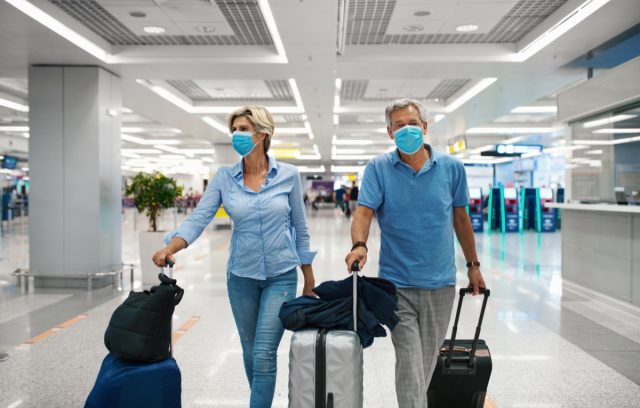
According to Dr. Vemuri, "You can avoid getting it by avoiding contact with a person who has known monkeypox. When one is traveling to areas where it is endemic avoid intimate contact with animals. Also one should not entertain thoughts of owning or handling exotic animals from endemic areas as pets when they are in the United States. There was a large outbreak in Illinois in 2003 which was traced to rodents that were imported from Ghana as exotic pets."
Is Monkeypox As Contagious As COVID?
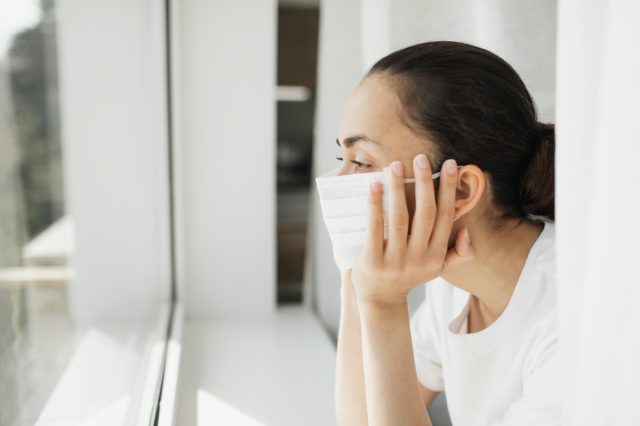
Dr. Vemuri says, "No, it is not as contagious as COVID. COVID is droplet and airborne and is highly contagious. Monkeypox is transmitted more by direct contact and very rarely by droplet. Typically an infected individual only has a chance of infecting intimate household contacts and healthcare workers before it is recognized as monkeypox. SARS-CoV-2 the virus that causes COVID-19 is a very small RNA virus. The monkeypox virus is a very large double-stranded DNA virus. They are very different virologically speaking."
Dr. Parikh states, "Luckily it is not as contagious as COVID as very close contact with bodily fluids is needed. That being said, similar symptoms are cough, fever weakness and flu like symptoms so you can catch if very close or have sexual contact with an infected individual. Please isolate yourself if you feel sick and get tested for COVID and also monkeypox if you have the characteristic rash or have been close to someone who does."
What Is The Natural History Of A Monkeypox Infection
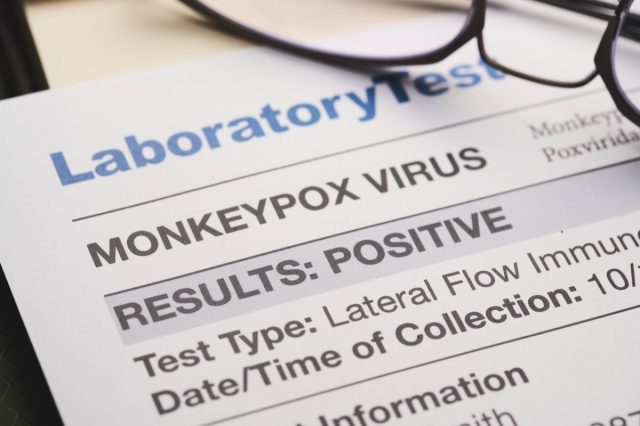
Dr. Vemuri explains, "It is best to think about monkeypox infection as having four stages. There is an incubation period which lasts anywhere from 5 to 21 days, in this stage there are no symptoms. It's not clear if people can actually transmit it during this stage. Studies are ongoing. The febrile stage lasts for about 1 to 4 days and is associated not only with fever and chills but headache sore throat fatigue and body aches. Shortly after the beginning of the febrile stage the rash stage appears and it can last anywhere from 2 to 4 weeks. The rash goes from flat patches to raised nodules to fluid-filled blisters which look very similar to chickenpox or shingles; the lesions progress through these various stages in about 1 to 2 days for each phase. In the final stages of the rash these blisters usually look like there is pus in them and then they eventually burst and scab over. The last stage of the illness is considered the recovery phase where typically people no longer have symptoms and it may take days to weeks to achieve full recovery. Again it is felt that transmission occurs at the beginning of the febrile stage and until all the lesions are crusted over. There are 2 main strains of the virus; the so-called West African strain is more contagious but has a lower mortality of about 1 to 4%. The central African strain has a mortality of about 10%."
What Are Side Effects From Monkeypox?
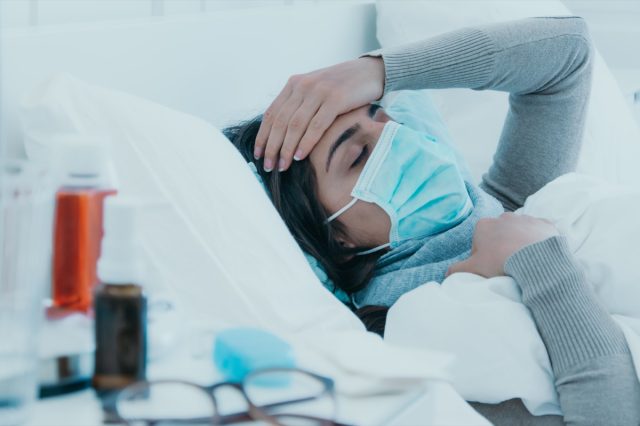
"I obviously have not taken care of anyone with a monkeypox infection so I personally do not know what patients are saying about it, but when you read the reports in the medical literature it is quite a debilitating infection as theoretically one could be ill for up to a month," Dr. Vemuri says. "The good news is typically the mortality seems to be low. We have not had enough infected people to have long-term longitudinal studies on the effect of a monkeypox infection on long-term health; I should say at least that I know of."
Dr. Parikh explains, "Most recover fully without long term complications especially those from the recent outbreak in Europe and the USA. There are however more severe strains that can be deadly but luckily that is not what we are seeing."